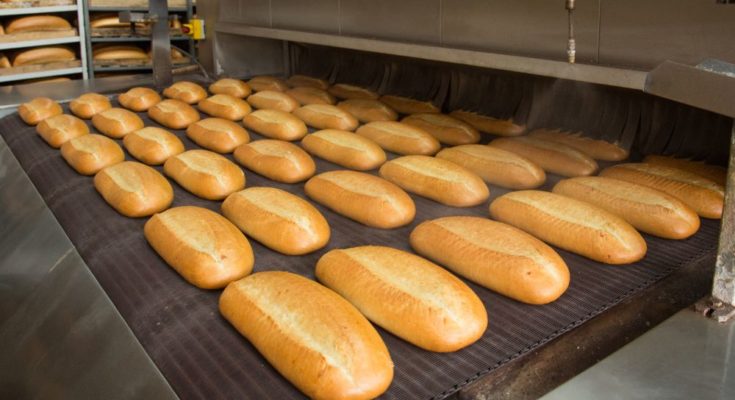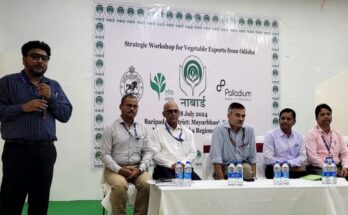With a view to provide financial, technical and business support for upgradation of existing micro food processing enterprises, Ministry of Food Processing Industries (MoFPI) has launched a Centrally sponsored scheme, ‘PM Formalisation of Micro Food Processing Enterprises’ (PM FME). Launching the scheme, the minister said that the scheme would generate total investment of Rs 35,000 crore and generate nine lakh skilled and semi-skilled employment and benefit 8 lakh units through access to information, training, better exposure and formalisation. The guidelines of the scheme were released on the occasion.
Highlighting the role of local food processing units, Badal said that food products manufactured by the rural entrepreneurs in the villages have a long tradition of supplying Indian food products to the local population.
Speaking about the challenges faced by food processing sector, she said that the unorganised food processing sector faced a number of challenges which limit their performance and their growth. She added that these challenges include lack of access to modern technology and equipment, training, access institutional credit, lack of basic awareness on quality control of products; and lack of branding and marketing skills among others. Badal shared that owing to these challenges, the unorganised food processing sector contributes much less in terms of value addition and output despite its huge potential.
Speaking on the occasion, the minister said that the unorganised food processing sector comprising nearly 25 lakh units contribute to 74 percent of employment in food processing sector. Nearly 66 percent of these units are located in rural areas and about 80 percent of them are family-based enterprises supporting livelihood to rural households and minimising their migration to urban areas. These units largely fall within the category of micro enterprises.
Details of the PM FME scheme
The scheme will be implemented over a period of five years from 2020-21 to 2024-25 with an outlay of Rs 10,000 crore. The expenditure under the scheme would to be shared in 60:40 ratio between Central and state governments, in 90:10 ratio with North Eastern and Himalayan states, 60:40 ratio with UTs with legislature and 100 percent by Centre for other UTs.
The Scheme adopts One District One Product (ODOP) approach to reap benefit of scale in terms of procurement of inputs, availing common services and marketing of products. The states would identify food product for a district keeping in view the existing clusters and availability of raw material. The ODOP product could be a perishable produce based product or cereal based products or a food product widely produced in a district and their allied sectors. Illustrative list of such products includes mango, potato, litchi, tomato, tapioca, kinnu, bhujia, petha, papad, pickle, millet based products, fisheries, poultry, meat as well as animal feed among others. Preference would be given to those producing ODOP products. However, units producing other products would also be supported. Support for common infrastructure and branding and marketing would be for ODOP products. The Scheme also place focus on waste to wealth products, minor forest products and aspirational districts.
Existing individual micro food processing units desirous of upgradation of their unit can avail credit-linked capital subsidy at 35 percent of the eligible project cost with a maximum ceiling of Rs.10 lakh per unit. Seed capital at Rs. 40,000 per self-help-group (SHG) member would be provided for working capital and purchase of small tools. Farmer producer organisations (FPOs), SHGs, producer cooperatives would be provided credit linked grant of 35 percent for capital investment along the value chain. Support would be provided through credit linked grant at 35 percent for development of common infrastructure including common processing facility, lab, warehouse, cold storage, packaging and incubation centre through FPOs, SHGs, cooperatives or state owned agencies or private enterprises to use by micro units in the cluster. Support for marketing and branding would be provided to develop brands for micro units and groups with 50 percent grant at state or regional level which could benefit large number of micro units in clusters.
The scheme places special focus on capacity building and research. National Institute of Food Technology Entrepreneurship and Management (NIFTEM) and Indian Institute of Food Processing Technology (IIFPT), two academic and research institutions under MoFPI along with state level technical institutions selected by the states would be provided support for training of units, product development, appropriate packaging and machinery for micro units.
All the processes of the scheme would take place on an MIS including applications by entrepreneurs, their processing, and approvals of various projects by the states and MoFPI, release of grant and other funds and monitoring of the project. Individual entrepreneurs and other stakeholders desirous of availing assistance under the scheme may contact the state nodal agencies of their respective states/ UTs regarding the rollout of the scheme and contact points at the district level.





Please let me know how much I have to invest to start micro food processing unit .ex 5 lk 10 lk